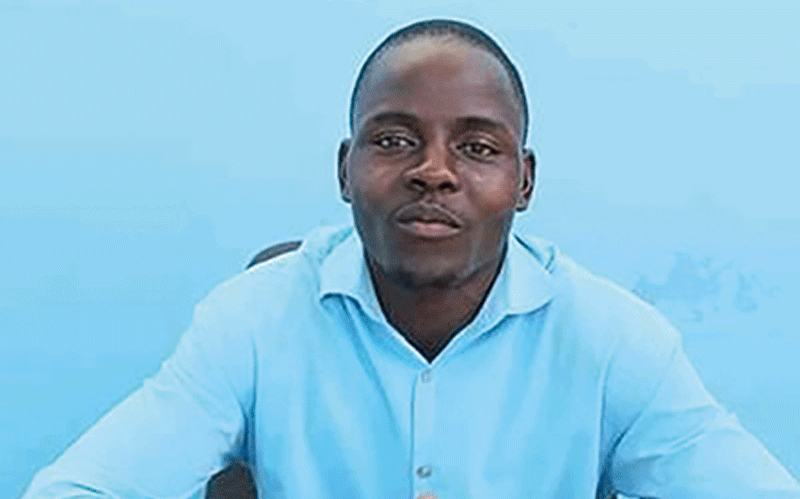
IN 2013, Zimbabwe adopted a new Constitution that came about as a result of a consultative process. The populace was consulted and the Constitution was adopted after the majority voted for it in a referendum.
One of the notable features of the 2013 Constitution is its focus on building an inclusive Zimbabwe in which discrimination is shunned, diversity is valued and where everyone is equal before the law and respected.
The national Constitution sets out the parameters for building inclusive communities in Zimbabwe. Inclusive communities require a bottom up approach rather than a top to down approach. In other words, building inclusive communities starts from within a person, cascading to a household, village, town up to national level. Without concerted citizen action to build and foster inclusive communities, we may look in vain for inclusivity at a national scale.
How can we foster or build inclusive communities in line with the provisions of our Constitution? What can we do to make our communities more inclusive in line with the constitutional provisions?
Cherish and promote equality
Enunciated in section 56 of the Constitution, equality makes reference to equal treatment of both women and men in all aspects of life including the political, economic and social spheres. Equality and non-discrimination are the anchors of inclusivity. A community is an inclusive one if every person within the community is treated fairly and equally regardless of their race, colour, tribe, place of birth, ethnic or social origin, language, class, religious belief, political affiliation, opinion, custom, culture, sex, gender, marital status, age, disability, economic or social status or any other categorisation.
Promote women rights
Women are a very important constituent of any community. They serve numerous roles. They are aunties, nieces, and daughters, mothers, sisters, and wives. They, just like their male counterparts, have full and equal dignity of the person with men and this includes equal opportunities in political, economic and social activities.
- Mavhunga puts DeMbare into Chibuku quarterfinals
- Bulls to charge into Zimbabwe gold stocks
- Ndiraya concerned as goals dry up
- Letters: How solar power is transforming African farms
Keep Reading
Section 80 elaborates clearly the rights of women and equality of women and men. Interestingly, in most communities, women outnumber men. It is only reasonable that the majority be part of the decision-making processes on all issues that have a bearing on their livelihoods. All people have the right to be part of decisions that affect their lives and the groups they belong to.
Welfare of children
Section 81 provides for children’s rights including the right to equal treatment before the law, right to be heard, to family or parental care and to be protected from economic and sexual exploitation, from child labour and from maltreatment, neglect or any form of abuse. Section 19 mandates the State to adopt reasonable policies and measures to ensure children enjoy these rights. The community also have a huge role to play to ensure that children are well catered for. Ubuntu African philosophy makes it everyone’s obligation to cater for the needs and welfare of children.
Respect and support the elderly
Inclusive communities have a place for everyone and cater for its elderly. Defining the elderly as people over the age of 70, section 82 of the Constitution provides a right for the elderly to receive reasonable care and assistance from their families (and by their communities) and the State. In addition to the care and assistance from families and the community, the State has a further obligation thrust on it by sections 21 and 82 of the Constitution to offer health care, medical assistance, financial support and social security to the elderly as well as take reasonable measures to secure respect, support and protection for elderly persons and to enable them to participate in the activities of their communities.
Rights of persons with disabilities
In everything that we do in our communities, be it public gatherings, construction of new public facilities, establishment of development committees among other things, we ought to remain mindful of the need to recognise the rights of persons with disabilities, particularly the right to be treated with respect and dignity. Section 22 of the Constitution places upon the State the obligation to develop programmes for the welfare of persons with disabilities, as well as to consider the specific requirements of persons with all forms of disability in development plans.
Youth empowerment
Section 20 of the Constitution places the obligation for youth empowerment and encouraging youth participation on the shoulders of the State. However, communities can do something in this regard. A community should afford its young ones opportunities so that they flourish in the socio-economic and political spheres of life.
Respecting other peoples’ preferences
Several sections of the Constitutions speak to the freedom of the individuals to make choices. For instance, section 58 guarantees freedom of assembly and association; section 67 provides for right to make political choices; section 66 freedom of movement and section 60 freedom of thought, opinion, religion or belief.
Inclusive communities do require respecting and facilitating the realisation of individual liberties and human dignity.
- Brighton Taruberekera is a political and development consultant, writer and researcher. He can be contacted on 0778 992 045/[email protected]








